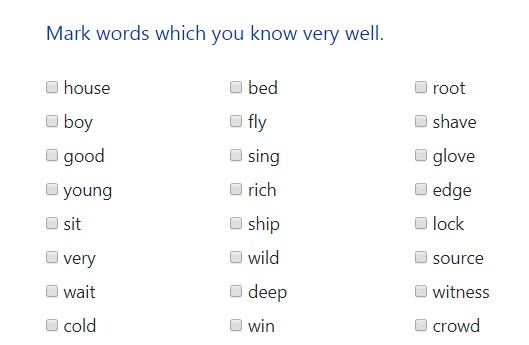Lesson 16
How to Speak Fluently
On Monday, I go to school again. Our teacher asks us how Friday’s school party was. One student says that the party was great. We had a lot of drinks and a lot of fun. The girls from our class enjoyed the party as well. I enjoyed the party a lot because Sofia was there. I could talk to her and we danced together. It was all very nice.
There were also two boys from my football team at the party. These boys were from Brazil. Their English was simple. They could speak only in short sentences, but they were extremely funny at the party. They made a lot of jokes about life in England, about other players from our team and about girls from their class. Everybody laughed. Their sentences were very short with only three or four words, but they were able to speak fluently.
When we speak about the party, I tell my teacher, “It was really interesting to see that somebody who doesn’t know many words can already speak fluently. I know some students who are at a much higher level and have a hard time speaking.”
My teacher says, “This is really interesting. I can tell you that the two boys from your football team showed you what all students should do. The boys used what they knew. They cared only about what was really important. It was communication.”
Then one girl asks, “So, what should we do if we want to speak English fluently? Should we go to parties and make jokes?”
My teacher says, “First, let me explain what fluent speaking is. Many students think that fluent speaking is fast speaking with a lot of words and perfect grammar. But there is a better, more correct definition of fluent speaking. Fluent speaking is speaking without long pauses.
Some people can do it at 1000 words, some people can do it at 2000 words. But there are also people who know 3000 words and aren’t able to speak fluently.
If you want to speak fluently, you have to practise speaking. There is no other way to improve your fluency. Speaking is a physical activity. It is like playing a musical instrument. If you want to play a violin, you need to train the connection between your brain and the muscles on your fingers. When you want to speak well, you need to train the connection between your brain and the muscles in your mouth.
If the connection between your brain and your mouth is not often trained, you can’t speak fluently no matter how many words you know. You can’t complain that you can’t speak fluently if you don’t practise speaking often.
You can have this experience. You meet a foreigner who wants to speak with you in English. You want to say ideas which are in your head, but you aren’t able to do it. You can’t find the right words. Then, when you end the conversation and play it back in your head, you realize that you actually know the right words, but the conversation is already finished.
Why do you experience such situations? Because you have little training. Your speaking isn’t automatic. It is not automatic because you don’t practice it often enough.
When you want to speak fluently, I recommend speaking for at least 30 minutes a day. You can speak to a real person. If you don’t have a real person to speak to, you can do thinking aloud.
It is necessary to really think aloud and not only think in your head. You need to practise the connection between your brain and your muscles. You can do this by thinking aloud. Does it make sense?”
“Yes,” says the girl.
If you want to speak fluently, speak for 30 minutes every day.


